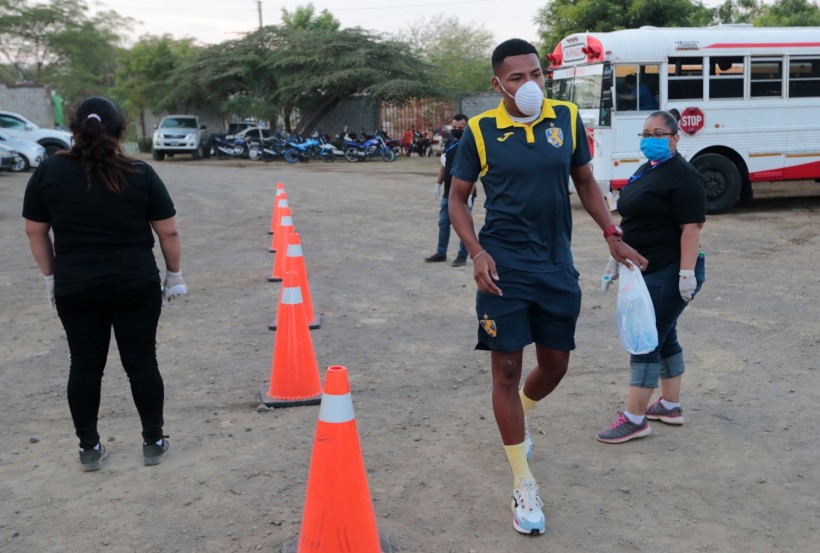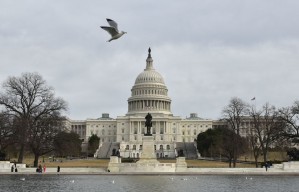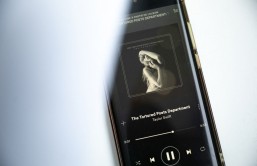
(Photo : REUTERS/Oswaldo Rivas)
Soccer Football - Liga Primera Nicaragua - Managua FC v Real Esteli - Nacional Stadium, Managua, Nicaragua - May 9, 2020 Managua FC's players and staff wearing protective face masks before the match, despite most sport being cancelled around the world as the spread of coronavirus disease (COVID19) continues
On Tuesday's game opener of the KBO or Korean Baseball Organization's 2020 season, one of the firsts live sports games to come back on the air, as the NC Dinos' orchestrate their final chance for a comeback, play-by-play announcer Karl Ravech vanished.
The host of ESPN's flagship MLB program "Baseball Tonight," Ravech experienced technical difficulties while calling the game from his home in the northeast part of United States, thousands of miles away from where the actual battle takes place.
Eduardo Perez, a longtime professional baseball player and Ravech's partner in the virtual broadcast booth took over from his own home in the southeast area of the country until Ravech was able to come back.
Ravech shared with the viewers that it was caused by the unstable internet and reminded them to be prepared, as it might happen again.
The game opener was the first Korea Baseball game aired by ESPN as part of an agreement with KBO, wherein they will show six KBO games a week.
Though the Dinos were able to sneak two players on base during the ninth inning, they failed to deliver and the Samsung Lions won the game opener.
Technical difficulties, like those experienced during the broadcast on Tuesday, are just one of the numerous challenges the sports network faces in its first major step to air live sports since the freezing of professional sports in the US due to the threat of COVID-19 pandemic.
Read also: Fake Death? Former Soccer Player Believed to Be Dead, Found Alive After 4 Years
ESPN is betting that Americans are craving live sports enough to track an unfamiliar league even halfway across the planet.
Ravech emphasized that there was an absolute hunger and desire to watch live sports programming as this is the time of the year where baseball is played.
He also added that if you can provide that meal to a hungry audience, they're going to eat it.
Despite some reopening in various states and lifting of lockdowns, the United States is still in the throes in its combat against the pandemic as the number of infected citizens skyrocketed to 1.3 million with their death toll reaching 78,000.
But countries that were able to flatten the curb started to bring the competition back online as Taiwanese baseball started a month ago but without the presence of fans while South Korea's league began this week and Bundesliga is gearing up to come back as the rate of new infections slowed down in Germany.
The possible come back of Bundesliga will likely put pressure on the European soccer leagues to resume or to open.
These games are more than just a game for sports fans around the world as it offers a semblance of a return to normalcy especially for countries like the United States who are still struggling to contain the pandemic.
The return of KBO offers fans something to satisfy their thirst for live sports as well as a picture of what sports events might look like when they eventually resume.
Ravech also discussed that the KBO broadcast is a blueprint and a template for the future.
Related article: NBA in Vegas: MGM Offers to Salvage NBA Season








